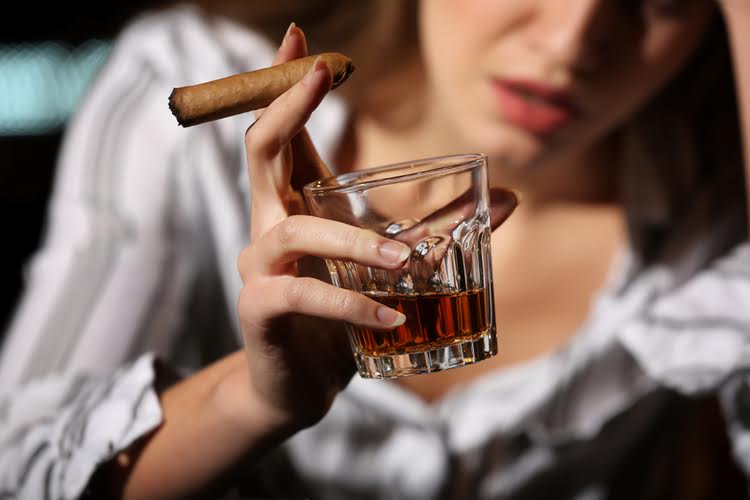Recovery Why Are Sugar Cravings Common in Addiction Recovery?
Besides inducing similar sensations, the two substances can also lead to overloading the liver when taken in excess. When your blood sugar is low, it’s natural for your body to crave sweets to counteract it. Even if you indulge and give your body sugar to level out, it won’t solve the issue long term. Your blood sugar will drop again, landing you right back where you started. In this article, we’re going to go through the causes for your sugar cravings.
By developing healthier coping mechanisms and stress management techniques, individuals can reduce their reliance on sugary foods and focus on their overall well-being and recovery. In conclusion, sugar cravings are a why do alcoholics crave sugar common problem for recovering alcoholics and can be difficult to manage. The underlying causes of sugar cravings can vary, but often include nutritional deficiencies, hormonal imbalances, and psychological triggers.
Find Support in Addiction Recovery
Do you often find yourself reaching for sweets after a night of heavy drinking? Alcoholics also experience sugar cravings as well, and the reasons behind this are multifaceted. Alcohol triggers a release of dopamine1 in the brain, one of our “feel-good” hormones that is also released when we consume drugs, as well as sugar. We may experience lower levels of dopamine and seek out a “hit” of that feel-good hormone, which is lacking without the presence of alcohol. Dopamine is known as the “feel-good” neurotransmitter and is involved in reward and pleasure pathways in the brain.
When one stops drinking, the body starts to rectify these imbalances, often leading to increased cravings for specific types of food, including sugar-rich items replacing alcohol. Moreover, alcohol itself is high in empty calories, and once its consumption is stopped, the body seeks other sources of these quick calories. Alcohol use disorder (AUD) is a chronic condition characterized by the compulsive consumption of alcohol, despite negative consequences.
Drug Use in Georgia: Latest Statistics (
Finally, it is important for recovering alcoholics to have a support system in place to help them manage cravings. Connecting with family and friends, attending support groups, and talking to a therapist can all help to provide a sense of comfort and support during the recovery process. NCBI makes a strong case for this, as we can briefly explore here to give more context to why recovering alcoholics crave sugar. Furthermore, research has shown that excessive alcohol consumption can lead to insulin resistance in the liver which can also contribute to sugar cravings.
Other sources of caffeine include tea, soda, coffee ice cream, and chocolate. Excessive caffeine intake can actually increase sugar cravings due to fluctuations in blood sugars and dehydration. Alcohol disrupts metabolism, normal hunger/fullness cues, and can produce massive blood sugar swings. These fluctuations in blood sugars can cause cravings for sweets or other high carbohydrate foods. Most people with alcohol addiction develop sugar cravings about 3 days after their last drink.
There are a few reasons why we are plagued by these extreme sugar cravings when we quit drinking
As it turns out, there is a scientific explanation behind this phenomenon. In today’s post, we’ll delve into the complex relationship between alcohol and sugar cravings. It’s important to understand that these hormonal changes are just one part of why people might crave sugar after quitting alcohol.

These days, we don’t have to hunt and gather for food, its much more accessible. Additionally, sugary alcohol drinks increase dehydration compared to standard alcohol flavors. Consuming alcohol and sugar together might feel like it diminishes feelings of drunkenness. This is likely because sugar slows the body’s rate of gastric emptying.5 Because of this, less alcohol enters the bloodstream.
Blood Sugar Imbalances
Additionally, an alcoholic may also experience a sudden increase in their appetite or an inability to feel satisfied after eating a meal. This article looks at why recovering alcoholics crave sugar and how to deal with it. Recovering alcoholics often crave sugar due to the neurological changes that occur during long-term abuse of alcohol. While it can be challenging to break this craving, there are various strategies and lifestyle modifications that can help recovering alcoholics curb their cravings for sugar. At Southeast Addiction Rehab in Tennessee, we can teach you these strategies.
- This disease can impact anyone, regardless of age, gender or social status.
- Many people are shocked to find that while they have cravings for alcohol when they cut back, the sugar cravings are more extreme and difficult to manage than the alcohol itself.
- Now that you’ve made the courageous decision to quit drinking, the future looks brighter.
- While it’s focused on this, it cannot release enough glucose into the bloodstream.
- Whether you’re a huge body builder or on a strict vegan diet, sugary foods are all around and easy to tempt the mind.
